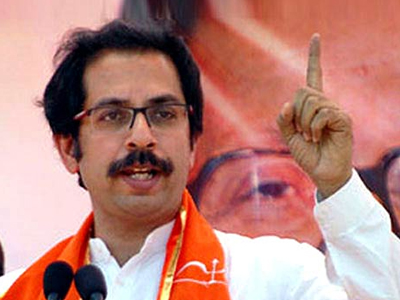 Mumbai, Mar 22: Hitting out at BJP over the Advani ticket issue, Shiv Sena today questioned why the party took so long to decide on his Lok Sabha seat and said while Narendra Modi's era has begun, it does not mean that it is the end of Advani's era.
Mumbai, Mar 22: Hitting out at BJP over the Advani ticket issue, Shiv Sena today questioned why the party took so long to decide on his Lok Sabha seat and said while Narendra Modi's era has begun, it does not mean that it is the end of Advani's era.
"Advani's name should have been in the first list of BJP Lok Sabha candidates. However, this did not happen. One who built the party and showed it days of glory was kept waiting," party president Uddhav Thackeray said.
"Why should BJP take so long to decide on Advani constituency. Doing so is his insult," the Sena president said in an editorial in Sena mouthpiece 'Saamana' here.
Targeting BJP for treating Advani unfairly, the editorial said: Narendra Modi's era has begun, but that does not mean it is the end of the Advani era.
The BJP veteran's political character is without any blot, the editorial said.
Uddhav's remarks came after Advani had on Thursday said he has decided to contest from the Gandhinagar constituency, after he was mollified by party leaders, including Rajnath Singh and Narendra Modi, and told he was free to choose between the Gujarat seat and Bhopal.
"Murli Manohar Joshi was asked to contest from Kanpur so that Modi could contest from Varanasi. Rajnath chose safe seat Lucknow instead of Ghaziabad. Jaitley was fielded from Amritsar by removing Navjot Sidhu from fray. Then why was there so much delay in Advani's case," Uddhav said.
"The relation that the veteran leader has with the masses is still intact. The Advani episode may seem trivial in comparison with the current political tribulations but one must keep in mind that big accidents can occur through such small incidents," the Sena leader said.
"There is no point coming to one's senses after the time has passed," he said.
Uddhav's sharp remarks come in the backdrop of a rift between the two parties after former BJP president Nitin Gadkari met Maharashtra Navnirman Sena (MNS) leader Raj Thackrey, leading to the Sena launching a tirade against Gadkari. Yesterday, Sena announced its decision to field candidates from Uttar Pradesh, Bihar and Delhi.





Comments
Add new comment